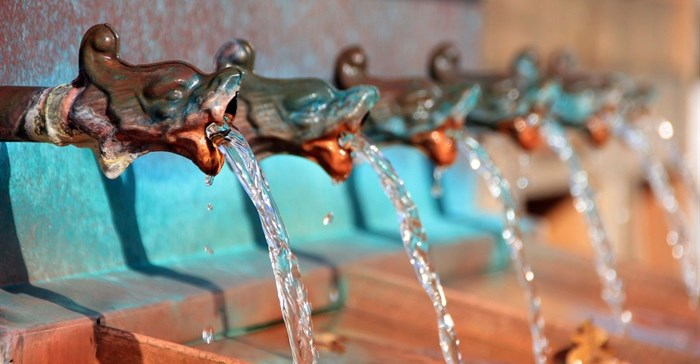World-renowned Kenyan environmental activist and Nobel laureate Wangari Maathai once wrote, "There comes a time when humanity is called to shift to a new level of consciousness . . . that time is now."
The City of Cape Town and various other stakeholders, including the Department of Water and Sanitation, have been on an almost frantic drive to persuade the people to drastically reduce their water use through the drought crisis. Already, the city is claiming some victory, suggesting that the so-called Day Zero has now been pushed back to 4 June from the originally set 11 March. Of course, the push back cannot be attributed to the reduced water use by people alone. There has been a significant reduction in the agricultural sector.
One would imagine that the news of the push back must be welcomed by all Capetonians, and offers them some fresh waters of hope. It has been a very tough couple of weeks for many of them whose lives and lifestyles have needed a drastic change. But more potent questions need to be posed as we go through this water crisis. Are we truly educating people of the significance of water and the need for a changed behaviour in how we use water? Are we conscientising people to the realities of what a water-less world would be like?
Drought is not a new phenomenon in SA
We cannot and should not waste this crisis. It offers us an opportunity to finally penetrate the psyche of the people and raise their conscious levels. The truth is that South Africa has always been a water-scarce country. In fact, many scientists argue that we have been living through many “Day Zeros” throughout our lifetimes. While the current drought is the most severe in 35 years, drought in itself is not a new phenomenon. Since 1980, the country has experienced four droughts. These droughts varied in severity, but all had a negative impact on the agricultural sector, the country’s ability to generate electricity and the broader economy.
Persuading people to reduce their water use in an effort to keep pushing back “Day Zero” and consciously educating people to purposefully use water in their everyday lives are two different things. I submit that educating people is a process which we have yet to properly begin. We are currently only just evading an absolute crisis. Should things get “better”, especially with the supply expected from the desalinated sea water and various other interventions currently at work, are we still going to continue insisting that people should sparingly use water? Or are we gradually going to let people slide back to the old behaviour?
These are fundamental questions to ask. According to the United nations, “Water scarcity already affects more than 40% of the world's population and is expected to rise due to global warming, with one in four people projected to face chronic or recurring shortages by 2050." Global warming is a reality from which we are not to be spared. While our water management tools and techniques may improve, it remains a scientific fact that the world is getting warmer and our water supply is being compromised.
Significant water savings
A 2014 report to the Water research Commission, titled Behavioural Nudges as a Water Savings Strategy, made some significant findings. Among other things, the research investigated how a change in people’s behaviour in how they consumed water could lead to some drastic savings both for municipalities and households. Among the conclusions, the report said, “The findings are encouraging in that they strongly suggest that behavioural elements may be leveraged in order to reduce household water consumption at the municipal level. Although the savings are roughly 1% (4l per household per day on average) of total water consumption for this sample, they are significant” (Smith and Visser: 2014).
The same report further submitted that, “The benefits of rolling out a behavioural intervention such as this seems cost effective when one considers that the field roll-out costs of the study came to about R100,000, whereas the total savings to households, over the two months for which we measured the impact of the once-off intervention, came to R586,000 at the R10,60/kl (the 2012 tariff for households consuming between 10-20kl per month) tariff rate” ( Smith and Visser: 2014).
Economic incentives
We have sufficient evidence that not only does a change in water behaviour reflect a positive output in municipal water demand, but offers great economic incentives for households. This in itself should be enough to encourage us to begin working on changing the behaviour of water users. And it all begins with education. The Water Research Commission will soon issue a call of interest to invite NGOs to be part of its nation-wide community outreach programme which seeks to bring water education to the fore. The commission believes that the rich knowledge which it has generated over the years and continues to generate has to yield optimum results on the ground.
Our people, sooner rather than later, will have to be sensitised to the paramount importance of water and the irreplaceable role it plays in our lives. And as Nobel laureate Wangari Maathai submitted, that time is now.


























































